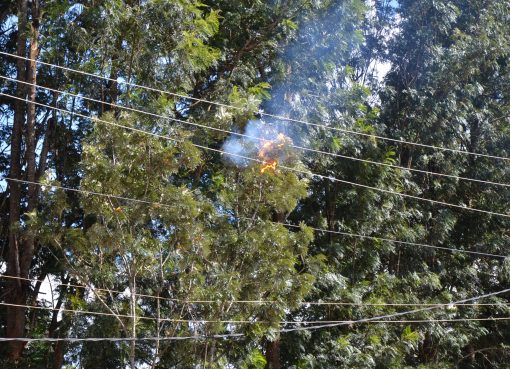Nakuru County has activated its Public Health Emergency Operation Centre (PHEOC) and constituted its Incident Management System (IMS) to coordinate response against the Mpox virus and stop the spread of the disease in the devolved unit.
The devolved unit has announced that it has cumulatively reported six cases since August 31 when it confirmed its first case involving a 37-year-old male truck driver who arrived from Rwanda, affirming that it is working with the Ministry of Health in undertaking various response measures, including contact tracing and enhancing surveillance.
According to County Director of Public Health Ms. Elizabeth Kiptoo, as part of the response strategy, the devolved unit has categorised the northern transport corridor as high-risk and operationalised public health emergency operations centres to coordinate response efforts.
“Eight (8) high-risk areas along the Northern transport corridor have been mapped and targeted interventions instituted. All healthcare workers and Community Health Promoters (CHPs) have been alerted. Surveillance has been enhanced in all the sub-counties: The County is using both Indicator-Based Surveillance (IBS) and Event-Based Surveillance (EBS) to avert the spread of the disease,” stated Ms. Kiptoo.
While indicating that one thousand, four hundred and seventy-six (1476) health workers have been sensitised on surveillance and detection of the disease, the official disclosed that forty-two (42) close contacts of Mpox patients have been traced, thirty-seven (37) followed up and discharged, while five (5) contacts are still on follow-up.
The declaration of Mpox as a global public health emergency is the second in two years. In July 2022, WHO announced the first, following a multi-country outbreak of Mpox, which was spreading swiftly through sexual contact and in countries that had never recorded prior cases. In May 2023, the global health emergency was declared to be over, following a steady decline in global cases.
Ms. Kiptoo said the county was running public awareness campaigns on ways of preventing the spread of Mpox, which requires isolating individuals diagnosed with Mpox from both humans and animals, infected individuals and those caring for them wearing appropriate personal protective equipment, including surgical masks and disposable gloves, to minimise the risk of transmission, and regular handwashing with soap and water, along with the proper disinfection of contaminated surfaces.
Virus symptoms include high fever, skin rash, headache, swollen lymph nodes, and general body aches. The virus can spread through contact with a sick person and respiratory droplets.
Ms. Kiptoo assured residents that the County Government has identified and prepared isolation facilities with a bed capacity of 192 to receive and manage cases. They include Naivasha Hospital, Gilgil Hospital, St. Joseph’s Hospital, St. Mary’s Hospital, Mother Kelvin Hospital, Mirugi Kariuki Sub-County Hospital, Nakuru Teaching and Referral Hospital, Bondeni Sub County Hospital, Elburgon Hospital, and Sachangwan Health Centre.
The official indicated that thirty-nine (39) samples have so far been collected, thirty-two (32) of which tested negative and six (6) tested positive. Sample collection kits, assured Ms. Kiptoo, have been pre-positioned strategically in the sub-counties while sub-hospital laboratory staff have been sensitised on sample management.
She disclosed that fifteen (15) guesthouses, bars, and lodges have been sensitised with inspection of all guesthouses, lodgings, and hotels in the devolved unit.
According to the Africa CDC, two vaccines are currently recommended for use against Mpox: JYNNEOS and ACAM2000. JYNNEOS is the preferred vaccine for the current outbreak of Mpox. It is a two-dose vaccine series, administered four weeks apart for maximum effectiveness. A vaccine recipient is considered fully vaccinated two weeks after receiving the second dose.
‘The JYNNEOS vaccine does not cause Mpox, smallpox, or any significant adverse reaction. Indications for the vaccine include known and presumed contacts of a case of Mpox and queer individuals who have had multiple sexual partners in the last 14 days,” says Africa CDC.
“Vaccination is a known means of prevention against the disease. Africa CDC recommends post-exposure prophylaxis (PEP) with the approved vaccine for all close contacts of a confirmed case. Close contacts include those living in the same household or those who had sex with the case, including kissing, hugging, and cuddling; sharing of utensils, towels, and bedding; or coming in contact with or touching the rashes on the body of the case,” says Africa CDC.
It adds: “High-risk populations such as healthcare workers, immunocompromised individuals, and sex workers should also be prioritised for vaccination as mass vaccination is not currently recommended for Mpox.”
By Jane Ngugi





